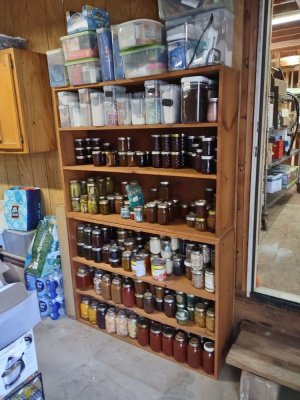David777
Well-known Member
- Location
- Silicon Valley
Little change. This frugal senior with a BMI 22 that tends to eat like a bird (well except on occasional binge days haha) , is rather ignorant about food preparation so has never spent much on expensive food nor been one to dine at restaurants. My monthly SS benefit check is enough that I have never needed to dig into my bank savings over the last 7 retirement years. So buy whatever food I desire. (Well except for that 5 pound loaf of peanut butter fudge I used to order for $40 that is now $80, haha.) And I do eat lots of milk and other dairy. My only expensive regular gourmet food product is Old Amsterdam Age Gouda cheese.


